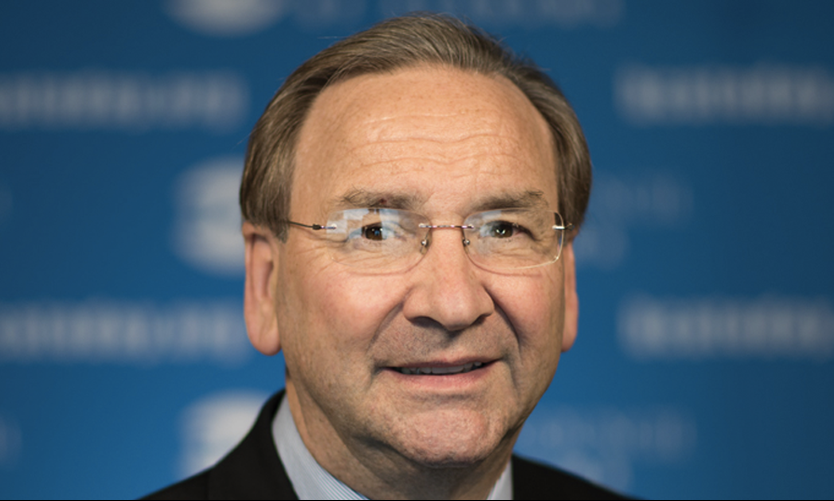By Bill Britt
Alabama Political Reporter
In an op-ed published in several statewide media outlets on June 8, 2015, Business Council of Alabama (BCA) Chairman Billy Canary spoke out against the Environmental Protection Agency’s (EPA) North Birmingham 35th Avenue Superfund cleanup:
“It is obvious that the EPA is seeking to revitalize urban neighborhoods surrounding Birmingham’s 35th Avenue Superfund site by using dollars that are hijacked from the targeted industries, which seems to be less about environmental mitigation and more about engaging in a social engineering experiment.”
The op-ed and the Joint Legislative resolution it praised is part of a Federal Grand Jury probe currently underway in Birmingham.
Here in his writing, Canary seems to equate removing toxic chemicals from a black community as a “social engineering experiment,” paid for “using dollars that are hijacked from the targeted industries.” He appears that think that fines imposed by the EPA on polluters shouldn’t be used to rebuild minority communities that are affected by industrial pollution.
As defined by the Tokyo Institute of Technology, ”Social Engineering, in short, is about engineering the society. In other words, it is a field of study to solve various problems in the society through practical approaches, as in engineering.”
Merriam-Webster defines it as “the practice of making laws or using other methods to influence public opinion and solve social problems or improve social conditions.”
But it’s difficult to imagine that either of these definitions is what Canary believes the EPA was attempting in North Birmingham.
In July of the same year, the Department of Housing and Urban Development (HUD) unveiled rules that, “localities will have to show the Federal government how they use its money to integrate housing. The goal is to improve the quality of housing in low-income areas and to encourage the construction of affordable housing in higher-income ones, ultimately leading to greater racial integration than existing law has achieved,” according to a published report in Boston Review.
The article also quotes the American Enterprise Institute’s Edward Pinto who told the New York Times, “This is just the latest attempt by HUD to social engineer the American people.” It also uses a statement by Arizona Republican Representative Paul Gosar, who said the [Obama] administration “shouldn’t be holding hostage grant monies aimed at community improvement based on its unrealistic utopian ideas of what every community should resemble. American citizens and communities should be free to choose where they would like to live and not be subject to federal neighborhood engineering.”
Social Engineering is a code word for government actions that favor minorities and especially the bettering of poor black neighborhoods.
The idea of engineering society’s development evolved from the Eugenics movement that emerged in the late 19th Century and into the middle 20th Century. The term was coined by English mathematician and geographer Francis Galton (1822-1911) in his, “Inquiries into Human Faculty and Its Development” (1883) and referred to one born “good in stock, hereditarily endowed with noble qualities.”
By 1930, the idea as expressed in Eugenical Sterilization: A Reorientation of the Problem, where it was thought that Eugenics could address the “insanity, feeble-mindedness, epilepsy, pauperism, alcoholism and certain forms of criminality, [which] are on the increase.”
Perhaps Canary is not a racist, and his understanding of social engendering is wholly different from the canons of writing on the subject. But in this case, it comes as a surprise that some of the State’s most influential and admired businesses are represented by a man, who once again finds his name linked to a grand jury inquiry.
It wasn’t enough that Canary and several BCA board members were embarrassingly hauled into criminal court because they enabled the crook, Mike Hubbard. Perhaps it is not sufficient to use racist-laced innuendo toward the urban population of the Magic City. But, for the love of all that is good and decent, should this man and his cronies lead the most prestigious business association in our State?
It may be that BCA under Canary wants to promote businesses that come from good in stock and to prevent government’s meddling in pauperism or toxic pollution (as long as it’s in minority communities) and just allow Social Darwinism to run its course.
But it could be that, like the German Roller Canary which is considered the best at mimicry, this Canary is singing a tune that is still sweet to the elite business entities of our State, or it could be that like the coal miner’s bird whose demise provided a warning of dangerous levels of toxic gases.
Racism is still the most pernicious influence in State politics, the foulest pathogen in our society as a whole. Poverty recognizes no race, industrial pollution sees no color, the color of one’s skin, or a bank account, but it seems BCA does and it appears that at least in June 2015, the State legislature did too.






















































